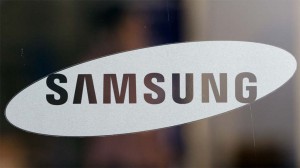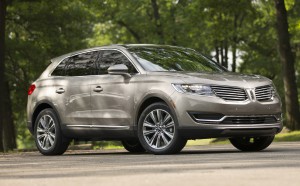Samsung Electronics will purchase Harman International, one of the world’s largest producers of in-vehicle electronics, for $8 billion.
The move could position the Korean technology giant as a leader in the emerging field of connected cars. It also will let it play a critical role in automotive cybersecurity, a subject of increasing concern as hackers begin to target ever more high-tech automobiles.
“We see substantial long-term growth opportunities in the auto technology market as demand for Samsung’s specialized electronic components and solutions continues to grow,” said Samsung Electronics President and Chief Strategy Officer Young Sohn.
With annual sales of around $7 billion, Harman is perhaps best known as a producer of mid and high-end in-car audio equipment, including the automotive lines of Bang & Olufsen. An estimated 30 million vehicles now are equipped with one of those systems.
(VW pushing tech edges with ’18 Golf, including gesture control. Click Here for more.)
But Harman had been expanding into a variety of other areas. In recent years, it has acquired several Israeli firms that are targeting other areas of automotive – as well as non-automotive – technology. Redbend, for example, is a leader in the growing field of over-the-air, or OTA updates. That is commonly used by smartphone companies, for example, to send operating system updates. Most automakers plan to make similar moves in the future to update increasingly complex in-vehicle software.
But that adds one more opportunity for hackers to gain access to vehicle systems. The National Highway Traffic Safety Administration has warned that cybersecurity must become a major focus for the industry as it adds connected car and autonomous vehicle systems. That is the focus of a second Harman acquisition, the Tel Aviv-based TowerSec.
Samsung has, itself, been on an acquisition binge. Just last month, it purchased Viv Labs, an artificial intelligence start-up created, ironically, by the creators of Siri, the virtual assistant found on the products of Samsung’s main smartphone rival Apple. Samsung has also made acquisitions in the field of cloud services, connected homes and mobile payments, the latter to challenge ApplePay.
The takeover of Harman is an all-cash deal valued at $112 a share. The Korean firm said it plans to keep the current Harman management in place.
(Investors betting big on autonomous technology. Click Here for the story.)
The South Korean company is involved in a wide variety of electronics, including the smartphone field where it has suffered an unexpected setback in recent months due to battery fire issues with its Galaxy Note 7 device.
Like most major electronics firms, Samsung has been eyeing the opportunities in the automotive electronics field – which the company estimated will top $100 billion in value by 2025. But it has been a relative latecomer to the field – something the acquisition of Harman should help resolve.
“Upon closing, the transaction will immediately give Samsung a significant presence in the large and rapidly growing market for connected technologies, particularly automotive electronics, which has been a strategic priority for Samsung,” a statement from Samsung said.
Harman will now link up to a connected car division that Samsung created in December of 2015. It is expected to work on a variety of in-vehicle technologies, including audio and infotainment, wireless updates, cybersecurity and more advanced connected car and autonomous vehicle technologies.
In the coming years, most vehicles are expected to be able to link up to both roadside infrastructure and vehicle-to-vehicle systems that will advise motorists of such things as traffic and weather issues. So-called V2X technologies also will help make it possible to put autonomous vehicles into widespread operation, industry experts believe.
“Harman perfectly complements Samsung in terms of technologies, products and solutions, and joining forces is a natural extension of the automotive strategy we have been pursuing for some time,” said Oh-Hyun Kwon, Samsung Electronics’ vice chairman and CEO.
(Comma One maker abandons plans for low-cost, semi-autonomous add-on device. For more, Click Here.)



